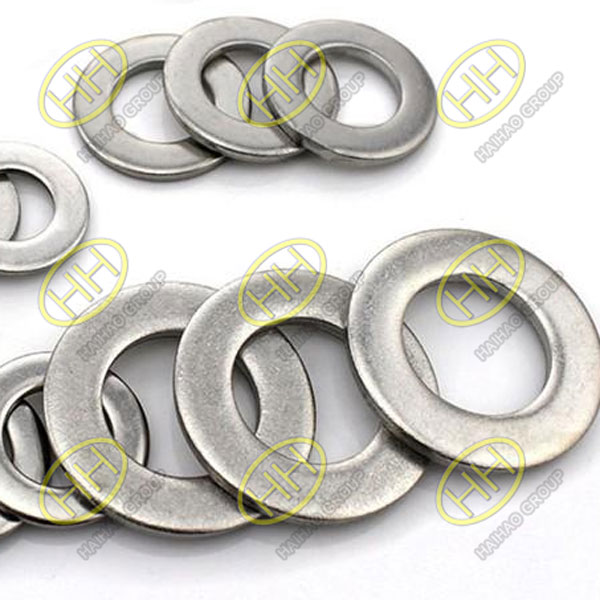The role of flat washers in bolt usage
Flat washers are an essential component in the use of bolts and nuts, playing a crucial role in ensuring the integrity and durability of fastened joints. But how should you select the right flat washer for your needs? Here’s a guide to help you understand the importance of flat washers and how to choose them effectively.
What is a Flat Washer?
A flat washer, also known as a plain washer, is used to distribute the load of a threaded fastener, such as a bolt or nut. They increase the contact area between the fastener and the surfaces of the connected parts, thereby reducing the pressure and protecting the surface from damage.
Key Characteristics of Flat Washers
Environmental Resistance: In harsh environments, flat washers should be sealed to prevent leakage under certain temperatures and pressures.
Sealing Capability: They should ensure a perfect seal when in contact with the mating surfaces.
Anti-Wrinkle Ability: Under pressure and varying temperatures, flat washers should resist deformation to prevent damage to the bolts.
Infection-Free Use: Ensure flat washers are free from contamination during use.
Ease of Disassembly: One of the main advantages of flat washers is their easy removal.
Temperature Tolerance: They should function correctly within specified temperature ranges.
Selecting the Right Flat Washer
When selecting flat washers, consider the following criteria:
Material Compatibility: Be mindful of galvanic corrosion when different metals are in contact. The material of the washer should generally match the material of the connected parts, often steel, alloy steel, stainless steel, or aluminum alloy. For electrical conductivity, copper or copper alloys may be used.
Size Appropriateness: The inner diameter of the washer should correspond to the larger value of the thread or bolt diameter. For softer materials or in combination with spring washers, a larger outer diameter is preferred.
Interference Avoidance: When placing washers under the head of bolts or screws, ensure there is no interference with the bolt head’s radius by selecting flat washers with chamfered inner holes.
Load-Bearing Capacity: For large-diameter bolts or where increased resistance to crushing is needed, use steel washers. For tension bolts or combined tension-shear bolts, steel washers are recommended.
Special Applications: Use specific washers for special requirements, such as copper washers for conductivity or sealing washers for airtightness.
Benefits of Using Flat Washers
Increased Contact Area: They enhance the contact surface between the bolt and the machine, distributing the load more evenly.
Surface Protection: Flat washers help prevent damage to the machine surface when spring washers are used.
Force Distribution: By enlarging the force-bearing area, flat washers protect parts from damage and reduce the pressure between the nut and the equipment.
Drawbacks of Flat Washers
No Vibration Resistance: Flat washers do not provide anti-vibration properties.
No Anti-Loosening: They do not prevent bolts from loosening under dynamic loads.
Conclusion
Flat washers are invaluable in the assembly of machinery and equipment, offering significant protection and load distribution benefits. However, they should be chosen and used correctly to maximize their effectiveness. Always consider the specific requirements of your application, including material compatibility, size, and environmental conditions, to ensure the best performance of your fastening systems.

